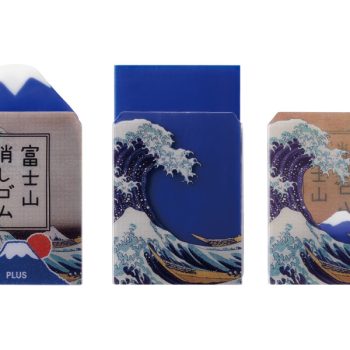
The movie poster for Sayonara (1957)
The word sayonara is perhaps one of the most globally well-known words from the Japanese language. It’s been co-opted by foreign films, music and other forms of entertainment. But its origin is rooted deeply in the Japanese culture of sontaku: reading between the lines of what is said and what goes unspoken.
Every language has expressions for parting because its such a universal action. On any given day, there’s a good chance we say goodbye to someone; usually (but not always) expecting to see them again. And whatever the meaning is behind those words, they can usually be grouped into 3 categories. The common “Good bye” comes from the phrase “God be with ye” and can be grouped into the “Prayers to god” category. The more casual “See you later” belongs in “Hoping to meet again,” while an expression like farewell belongs in the “Praying for good health” category.
| PRAYERS TO GOD | HOPING TO MEET AGAIN | PRAYING FOR GOOD HEALTH | |
| English | Good bye | See you later | Farewell |
| Spanish | Adios | Hasta la vista | Cuidate mucho |
| French | Adieu | Au revoir | |
| German | Tschüss | auf Wiedersehen | auf Wiedersehen |
| Chinese | zàijiàn (再见) |
However, the Japanese expression of sayonara is unique in that it doesn’t fall into either of these categories. As discussed recently on this Japanese trivia show, and according to Seiichi Takeuchi, professor emeritus at Tokyo University and a leading figure in Japanese philosophy, the origin of sayonara is sayo-de-arunaraba, meaning “if it be thus.” The expression can be found in an early Heian period (794 – 1185) text being used to connect two phrases, rather than a standalone expression.
For example, someone might say, “I must become a priest, and if it be thus, we shall part ways today.” For the Japanese, parting ways represented a dividing line that separated how things were before and how they will be. And the phrase sayo-de-arunaraba, which was eventually shortened to sayonara, encapsulated the many feelings and emotions of how things used to be (prior to parting) and how things will be after the parting.
In my mind, this is one of the best examples within the Japanese language of indirect expressions that can mean so much with so little being spoken.
advertisement
























March 21, 2019 at 12:50 pm
Except for Terminator*, who isn’t even a native Spanish speaker let alone a real person lol, or that song from HSM (basically except for Americans who obviously don’t know Spanish) never in my life have I heard “Hasta la vista”. The equivalent of “See you later” should be “Nos vemos (luego)” or “hasta pronto/luego”.
*Fun fact: In the Spaniard Spanish dub, it was replaced for “sayonara, baby” because, srsly, it doesn’t sound like something you say to someone you’ll see soon…
March 22, 2019 at 6:40 am
The German “Auf Wiedersehen” means “Seeing you again (in the future)”. So it’s correct in the category “HOPING TO MEET AGAIN”. For the category “PRAYING FOR GOOD HEALTH” though, we would rather use “Leb wohl!” or “Mach’s gut!” (less formal than “Leb wohl”) meaning almost exactly the same as “Farewell” .
March 22, 2019 at 10:51 am
Very interesting. Thanks!
March 22, 2019 at 11:07 am
“Hasta la vista” is a perfectly idiomatic Spanish (at least European Spanish) phrase. The fact that you haven’t heard it doesn’t make it weird, or incorrect. It’s simply not as common as the ones you mentioned, but there’s nothing wrong with it.
hasta la vista
1. expr. U. para despedirse.
Source: Diccionario de la Real Academia Española. Also, I’m a Spaniard.
March 26, 2019 at 2:38 am
People in Poland sometimes use to say “nara” to say goodbye. It’s a slang, and comes from “na razie” which means “for now” (you say this mostly to close friends, when you are certain that you will see them again).
As kids we used to shout “sayonara” as “bye” 🙂 it’s the first japanese word i learned.